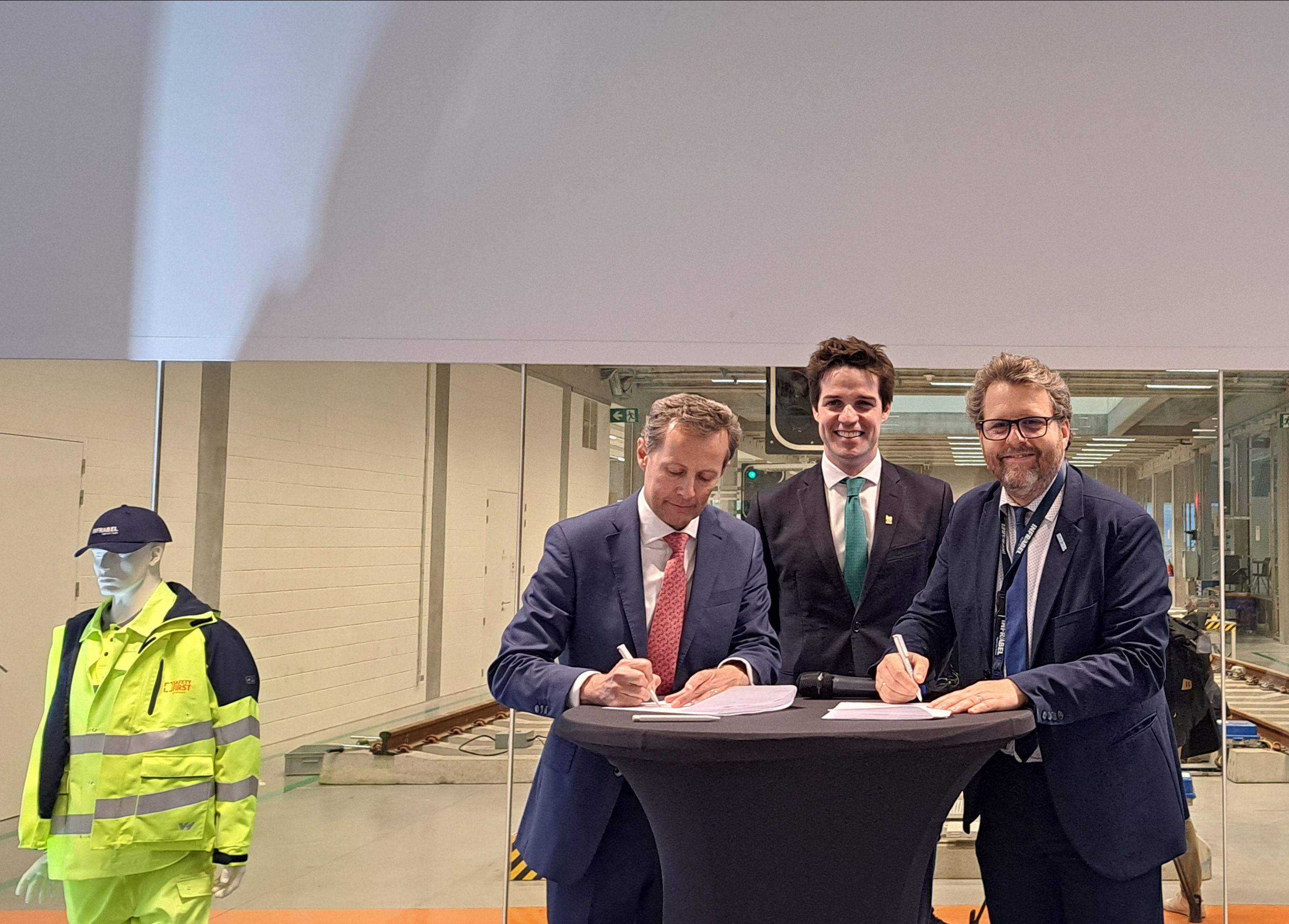New sensors in rail network to improve train punctuality

Rail network operator Infrabel and technology company Alstom have signed an 80 million euro contract to install up to 10,000 sensors along Belgium's rail network over the next 10 years. The train detection devices should help improve punctuality.
The Belgian rail network currently has about 12,500 sensors, on average every 1,500m, to detect trains. Each device puts an electric current on the tracks. When a train passes it, the metal train wheel creates a short circuit and so the train is detected. This is called a track circuit and allows Infrabel's control stations to track each train as it travels from sensor to sensor.
The same sensors ensure that level crossings are closed to traffic in time when a train is approaching. “They are small devices, but without them no train can run in Belgium,” said Infrabel CEO Benoît Gilson.
Many of the existing sensors are outdated and in need of replacement. They are also prone to malfunctions, leading to nearly 50,000 minutes of delays and 750 cancelled trains last year.
"So a high-performance track circuit system is very important for the regularity of trains," Gilson said. The new sensors - called JADE 3 - will be less prone to failure and will automatically signal when maintenance is needed, even before they break down. The contract includes maintenance of the sensors for 20 years.
Bernard Belvaux, managing director of Alstom Benelux, highlighted the local impact of the contract. The sensors were developed at Alstom's expertise centre in Charleroi and will be made by two Belgian subcontractors: Connect Group and Alpha Innovations. According to Belvaux, the contract will create around 30 jobs over 10 years.
#FlandersNewsService | Bernard Belvaux of Alstom Benelux, state secretary for Science Policy Thomas Dermine and Infrabel CEO Benoit Gilson at a press conference © BELGA PHOTO QUINTEN GEERAERT

